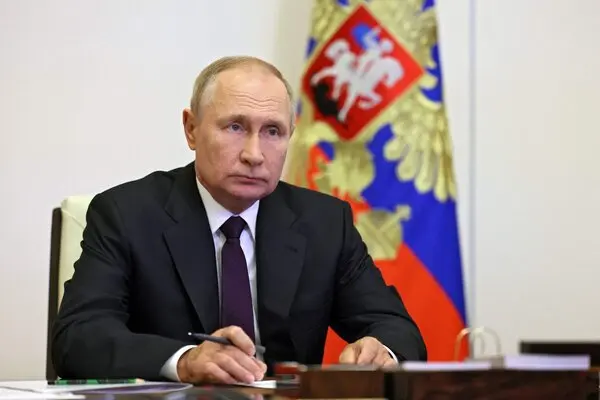Russian President Vladimir Putin has acknowledged Israel’s right to self-defense amid what he described as “unprecedented brutality” in the face of attacks by Hamas. Speaking at the Commonwealth of Independent States (CIS) summit on Friday, Putin reiterated Russia’s stance on the need for a negotiated solution to the Palestinian-Israeli conflict and the creation of an independent Palestinian state with East Jerusalem as its capital.
Putin emphasized the importance of seeking peaceful means to address the conflict and called for the implementation of the United Nations’ two-state formula. This formula entails the establishment of an independent Palestinian state that coexists in peace and security with Israel. He also expressed understanding for Israel’s right to defend itself, given the severity of the attacks it has faced.
“The negotiations’ goal should be the implementation of the United Nations’ two-state formula, which implies the creation of an independent Palestinian state with East Jerusalem as its capital, coexisting in peace and security with Israel, which, of course, as we have seen, has come under an attack of unprecedented brutality. Of course, it has the right to defend itself. It has the right to ensure its peaceful existence,” Putin stated during the summit.
Putin concluded his remarks by highlighting that, in his view, there is simply no alternative to the establishment of two independent states in the region. His speech aimed to underscore the importance of working towards a peaceful resolution of the Israeli-Palestinian conflict.
This statement from Putin comes at a time of heightened tensions and violence in the region, with Israel facing attacks from Hamas militants in Gaza. The conflict has had far-reaching implications and has drawn international attention.
The Commonwealth of Independent States (CIS) is a regional organization composed of former Soviet republics. Putin’s presence at the summit marked his inaugural foreign trip in some time. It was an opportunity for Russia to strengthen its diplomatic relationships and assert its influence in the region. The visit to Kyrgyzstan was part of Putin’s ongoing international engagements and discussions about Russia’s role and influence on the global stage.
Notably, neither Kyrgyzstan nor China, the destinations of Putin’s recent and upcoming visits, are signatories of the International Criminal Court (ICC), and they are not bound by its jurisdiction. Putin is expected to travel to China to participate in the third Belt and Road Forum in Beijing, reinforcing his international presence.
During his visit to Kyrgyzstan, Putin reaffirmed Russia’s position as the country’s primary trading partner and leading investor, emphasizing their commitment to furthering their cooperation. While trade between the two nations has increased substantially, some Western experts have raised concerns that Russian companies may be using Kyrgyzstan to bypass international sanctions.
The 20th-anniversary commemoration of Russia’s airbase near Kant, Kyrgyzstan, was also on Putin’s agenda. This airbase serves as a strategic location for Russia to extend its influence in the region.
In recent developments, the ICC issued an arrest warrant for Putin in connection with allegations of the deportation of Ukrainian children to Russia. However, Russia, which does not recognize the ICC’s authority, rejected the warrant as “unlawful.” In diplomatic situations requiring representation, Russia had previously sent Foreign Minister Sergey Lavrov instead of Putin.
Putin’s self defense speech at the CIS summit reaffirms Russia’s position on the Israeli-Palestinian conflict, advocating for a two-state solution while recognizing Israel’s right to self-defense. His engagement with neighboring countries and international organizations underscores Russia’s ongoing efforts to play a significant role in global diplomacy.
